第10章
Besides the 'Life of Miss Mitford' by Messrs. Harness and Lestrange, there is also a book of the 'Friendships of Mary Russell Mitford,' consisting of the letters she received rather than of those which she wrote. It certainly occurs to one, as one looks through the printed correspondence of celebrated people, how different are written from printed letters. Your friend's voice sounds, your friend's eyes look out, of the written page, even its blots and erasures remind you of your human being. But the magnetism is gone out of these printer's lines with their even margins; in which everybody's handwriting is exactly alike; in which everybody uses the same type, the same expressions; in which the eye roams from page to page untouched, unconvinced. I can imagine the pleasure each one of these letters may have given to Miss Mitford to receive in turn. They come from well-known ladies, accustomed to be considered. Mrs. Trollope, Mrs. Hofland, Mrs. Howitt, Mrs. S. C.
Hall, Miss Strickland, Mrs. Opie; there, too, are Miss Barrett and Mrs. Jamieson and Miss Sedgwick who writes from America; they are all interesting people, but it must be confessed that the correspondence is not very enlivening. Miss Barrett's is an exception, that is almost as good as handwriting to read. But there is no doubt that compliments to OTHER authoresses are much less amusing, than those one writes or receives oneself; apologies also for not writing sooner, CAN pall upon one in print, however soothing they may be to the justly offended recipient, or to the conscience-stricken correspondent.
'I must have seemed a thankless wretch, my dear Miss Mitford,' etc. etc. 'You, my dear friend, know too well what it is to have to finish a book, to blame my not attempting,' etc. etc. 'This is the thirty-ninth letter I have written since yesterday morning,' says Harriet Martineau. 'Oh, I can scarcely hold the pen! I will not allow my shame for not having written, to prevent me from writing now.' All these people seem to have been just as busy as people are now, as amusing, as tiresome. They had the additional difficulty of having to procure franks, and of having to cover four pages instead of a post-card. OUR letters may be dull, but at all events they are not nearly so long. We come sooner to the point and avoid elegant circumlocutions. But one is struck, among other things, by the keener literary zest of those days, and by the immense numbers of MSS. and tragedies in circulation, all of which their authors confidingly send from one to another. There are also whole flights of travelling poems flapping their wings and uttering their cries as they go.
An enthusiastic American critic who comes over to England emphasises the situation. Mr. Willis's 'superlative admiration' seems to give point to everything, and to all the enthusiasm. Miss Austen's Collins himself could not have been more appreciative, not even if Miss de Burgh had tried her hand at a MS. . . . Could he--Mr. Willis--choose, he would have tragedy once a year from Miss Mitford's pen. 'WHAT an intoxicating life it is,' he cries; 'I met Jane Porter and Miss Aikin and Tom Moore and a troop more beaux esprits at dinner yesterday! I never shall be content elsewhere.'
Miss Mitford's own letters speak in a much more natural voice.
'I never could understand what people could find to like in my letters,' Miss Mitford writes, 'unless it be that they have a ROOT to them.' The root was in her own kind heart. Miss Mitford may have been wanting a little in discrimination, but she was never wanting in sympathy. She seems to have loved people for kindness's sake indiscriminately as if they were creations of her own brain: but to friendliness or to trouble of any sort she responds with fullest measure. Who shall complain if some rosy veil coloured the aspects of life for her?
'Among the many blessings I enjoy,--my dear father, my admirable mother, my tried and excellent friends,--there is nothing for which I ought to thank God so earnestly as for the constitutional buoyancy of spirits, the aptness to hope, the will to be happy WHICH I INHERIT FROM MY FATHER,' she writes. Was ever filial piety so irritating as hers? It is difficult to bear, with any patience, her praises of Dr. Mitford. His illusions were no less a part of his nature than his daughter's, the one a self-centred absolutely selfish existence, the other generous, humble, beautiful. She is hardly ever really angry except when some reports get about concerning her marriage. There was an announcement that she was engaged to one of her own clan, and the news spread among her friends. The romantic Mrs. Hofland had conjured up the suggestion, to Miss Mitford's extreme annoyance. It is said Mrs. Hofland also married off Miss Edgeworth in the same manner.
Mary Mitford found her true romance in friendship, not in love. One day Mr. Kenyon came to see her while she was staying in London, and offered to show her the Zoological Gardens, and on the way he proposed calling in Gloucester Place to take up a young lady, a connection of his own, Miss Barrett by name. It was thus that Miss Mitford first made the acquaintance of Mrs. Browning, whose friendship was one of the happiest events of her whole life. A happy romance indeed, with that added reality which must have given it endurance. And indeed to make a new friend is like learning a new language. I myself have a friend who says that we have each one of us a chosen audience of our own to whom we turn instinctively, and before whom we rehearse that which is in our minds; whose opinion influences us, whose approval is our secret aim. All this Mrs. Browning seems to have been to Miss Mitford.